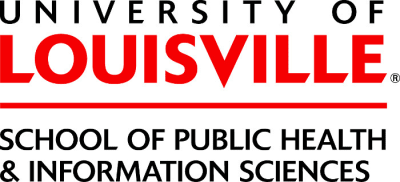
MS in Epidemiology
University of Louisville - School of Public Health and Information Sciences

Key Information
Campus location
Louisville, USA
Languages
English
Study format
On-Campus
Duration
2 years
Pace
Full time, Part time
Tuition fees
USD 14,453 / per semester *
Application deadline
Request info
Earliest start date
Aug 2024
* non-resident/international | resident $7,111
Introduction
Overview
The Master of Science (MS) in Epidemiology program is designed to prepare students for the Ph.D. program in Public Health Sciences with a concentration in Epidemiology. The MS in Epidemiology is offered by the Department of Epidemiology and Population Health.
The MS Epidemiology program is a 100% STEM-certified program at the University of Louisville.
Competencies
To graduate, students in the MS program in epidemiology must maintain a GPA of 3.0 or higher and be able to demonstrate the following competencies:
- Explain the evolving paradigms of epidemiologic theory and study design and their impact on public health and medical sciences
- Summarize scientific literature on an epidemiologic problem
- Formulate epidemiologic research questions and testable hypotheses
- Apply computer software for data management and analysis
- Design and apply methods for data collection and management for epidemiologic research
- Apply advanced quantitative methods to analyze an epidemiologic problem
- Integrate cross-disciplinary knowledge from molecular to population levels to make appropriate causal inferences
- Communicate in written and oral presentations epidemiologic concepts and findings to diverse audiences
Community Partnerships
Partnerships with the James Graham Brown Cancer Center have involved cancer prevention initiatives focusing on areas such as the use of a nicotine vaccine, evaluating the acceptance of the human papillomavirus (HPV) vaccine for cervical cancer prevention, and support with epidemiology and biostatistics needs.
Admissions
Curriculum
Degree requirements include required coursework in epidemiology, elective coursework in biostatistics and in public health sciences, and a thesis.
38 total credit hours:
- 20 credit hours of required coursework
- 12 credit hours of elective coursework
- 6 credit hours of thesis research
| Year 1 | ||
| FALL | HOURS | |
| PHEP 621 | Statistical Foundations for Epidemiology | 4 |
| PHEP 622 | Population Pathology | 3 |
| PHEP 623 | Theoretical Foundations of Epidemiology | 3 |
| Hours | 10 | |
| SPRING | ||
| Content Course Elective 1 | 3 | |
| Public Health Selective 2 | 3 | |
| PHEP 618 | Epidemiologic Methods II | 4 |
| Hours | 10 | |
| SUMMER | ||
| PHEP 666 | Master's Independent Study in Epidemiology and Population Health (optional) 3 | 1-3 |
| Hours | 3 | |
| Year 2 | ||
| FALL | ||
| PHEP 701 | Advanced Epidemiologic Methods | 3 |
| PHEP 702 | Epidemiologic Research Management | 3 |
| Content Course Elective 1 | 3 | |
| Hours | 9 | |
| SPRING | ||
| Content Course elective 1 | 3 | |
| PHEP 666 | Master's Independent Study in Epidemiology and Population Health 3 | 1-3 |
| Hours | 6 | |
| Minimum Total Hours | 38 |
Program Outcome
Job Outlook
Employment of epidemiologists is projected to grow 30 percent from 2020 to 2030, much faster than the average for all occupations.
About 900 openings for epidemiologists are projected each year, on average, over the decade. Many of those openings are expected to result from the need to replace workers who transfer to different occupations or exit the labor force, such as to retire.
Gallery
Career Opportunities
Career
Epidemiologists work at both the forefront of public health in the control and prevention of disease, disability and death, and behind the scenes researching risk factors and causes of health problems across populations. Epidemiologists play a key role in public health by collecting data on health indicators in populations through screening and surveillance systems. We detect, investigate and mitigate infectious disease outbreaks, design health, and disease screening and surveillance programs, and disease control and primary and secondary preventive interventions. Most importantly, we generate new knowledge about disease etiology that helps guide health policy and promotion, as well as medical treatment.